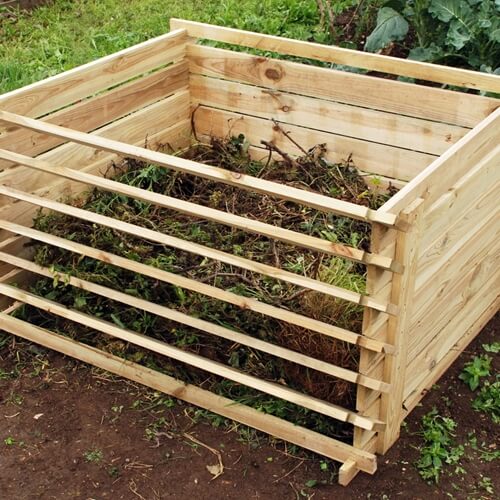An Intro to Composting
Composting not only uses food waste in a productive manner, but it can also help you to grow more nutritious, better-tasting foods. If you’ve ever wondered about how to turn your unwanted kitchen scraps into helpful compost, read below on how to start your own kitchen compost system.
Choose your location and container
If you can, you may choose to create a compost area outside. If you are a city dweller and don’t have access to a yard, try vermicomposting (composting with worms) or keep a bin on your back stairwell. Containers can be as simple as a plastic storage container with holes in the lid or a fancy box that is made for composting. Containers should provide ample ventilation for the helpful bacteria in your compost to grow. Some pre-made containers are called tumblers and are built so that you can easily rotate the ingredients inside, while in others you will have to move the material with a shovel or other tool. If you have a lot of scraps and make a lot of food waste, use a larger container. For a single person, you may want a small container that doesn’t take up so much space.
Start your mix
A healthy compost pile is a mixture of brown ingredients, green plant matter and moisture. If you have access to grass clippings or other organic plant matter, use it as your green ingredients This is also where kitchen waste (like peels, rinds, egg shells, etc) come in. Shredded newspaper or wood chips are great brown ingredients. Add this mixture plus some water together in your container. For quickly-growing compost set the container in the sun. It will still decompose in the shade but the process will speed up if it is in sunlight.
Take care of your compost
Use a shovel or other garden tool to mix around your compost every two weeks. Add organic material regularly to keep the bacteria healthy and alive. Make sure the mix has enough water to be damp but that there is no standing water or slimy mold. When the weather is hot, be sure to pay extra attention to watering your mix.
What can you compost?
When you take online cooking classes, you will be using a plethora of fresh ingredients that will be great for composting once you’re done using them to cook with. Great items to compost with include vegetable scraps, grass, weeds, untreated sawdust, leaves, hops, manure, coffee grounds, fruit waste, corn stalks, shredded cardboard and more. Once your mixture is decomposing it’s a great way to add nutrients to your garden to grow super-healthy produce.


